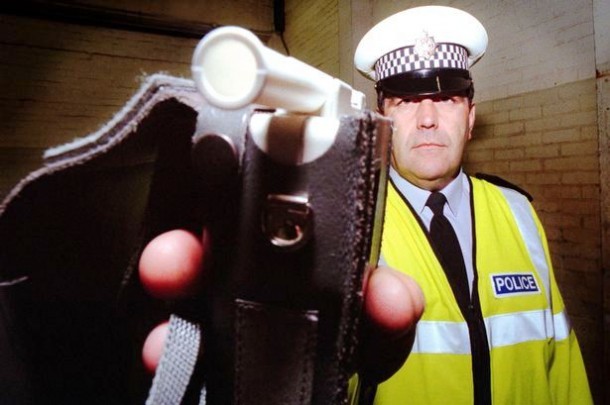Message getting through on drink driving

IT has been 50 years since the Government launched its first don’t drink and drive campaign.
And in those decades the attitude to the issue has changed markedly.
New research from THINK! shows how much attitudes have changed to drink driving in the last half century.
Of those surveyed, 91 per cent agreed drink driving was unacceptable and 92 per cent of people said they would feel ashamed if they were caught drinking and driving.
This compares to over half of male drivers and nearly two thirds of young male drivers who admitted drink driving on a weekly basis in 1979.
The shift in attitudes is a stark contrast to the first drink drive public information film in 1964, which was set in an office Christmas party.
The advert politely reminded people that “four single whiskies and the risk of accident can be twice as great… If he’s been drinking, don’t let him drive.”
Through a combination of road safety campaigning and better enforcement, road deaths due to drink driving have fallen from 1,640 in 1967 to 230 deaths in 2012. Today, the government is sending out a clear message there is still a long way to go. The new advert reminds people that 1 death on our roads is too many.
Transport Secretary Patrick McLoughlin said: “The change in attitudes to drink driving over the last 50 years is a huge success story. It is hard to imagine now how shocking and ground-breaking the first drink drive campaigns were when they launched. Clearly THINK! has had a significant impact.
“Most of us understand drink driving wrecks lives but there is further to go. In 2012, 230 people were killed in drink driving accidents – 230 too many. This makes the THINK! campaign as relevant as ever.”
Today, over 88 per cent of people say that they would think badly of someone who drinks and drives and almost half of respondents say they would prefer to tell their partner they watch pornography regularly than confess to being caught drink driving (45 per cent). The survey also showed that 61 per cent would rather reveal their internet search history to their employer than admit to a drink drive conviction, with 24 per cent preferring to tell their partner they’ve had a sexually transmitted infection (STI).
Although casualties have fallen dramatically since the first drink drive ad, drink driving remains one of the biggest killers on our roads.
Brake, the road safety charity, is using the anniversary to highlight the ongoing menace of drink driving and call for zero-tolerance to help stamp it out for good.
With its appeal to women not to let their partners drink drive, the 1964 advert is a product of its time, but its message remains as relevant as ever. To this day, men account for more than three quarters (77 per cent) of drink drive casualties.
What has changed is the message about how much is too much, with research having demonstrated the huge danger of drinking even small amounts and driving. While the 1964 advert warns of the risks of drinking four to six whiskies, today Brake’s not a drop campaign urges people to stay off the alcohol altogether if driving.
Julie Townsend, deputy chief executive, Brake, said: “Public education is critical to tackling road deaths and injuries, not just those caused by drink driving, so it is vital the government continues to fund this work.
“However, it is shocking that even though drivers are now well informed of the dangers, many continue to get behind the wheel after a drink, causing an unacceptable death toll and horrendous suffering for those who are left bereaved or injured. That’s why we need a zero-tolerance drink drive limit – to send a clear message that any amount of alcohol makes you unsafe to drive – with tougher penalties and enhanced traffic policing to enforce it.
“Think – how many more lives will be destroyed or ruined if we don’t act now?”
Brake campaigns for a zero-tolerance drink drive limit of 20mg alcohol per 100ml blood through its not a drop, not a drag campaign, and is urging all political parties to make this a key manifesto commitment for the 2015 general election. Tweet @Brakecharity, hashtag #NotADrop.
